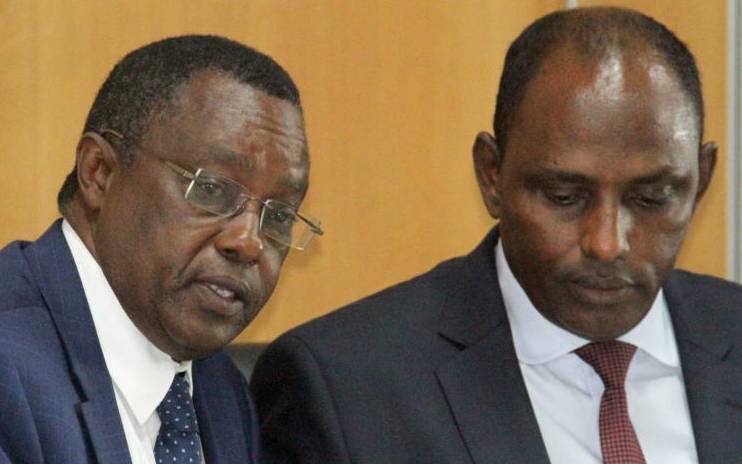×
The Standard e-Paper
Join Thousands Daily

National Treasury Cabinet Secretary Ukur Yatani (right) with Principal Secretary in the ministry Julius Muia at a past event. The CS has admitted Kenya's rising debt burden is a threat to fiscal sustainability. [David Njaaga, Standard]
More than 100 civil societies have joined the call for debt forgiveness to enable poorer countries, including Kenya, to wade through the Covid-19 mess.